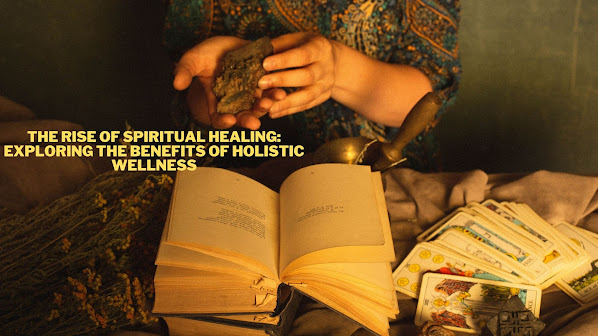Here are some tips on how to improve your Tarot reading
Introduction:
A powerful tool of astrology and spiritual guidance, tarot card reading has fascinated people for centuries. Its appeal lies in its ability to provide insight and clarity into many aspects of life, from personal growth to relationships. Whether you're an experienced tarot card reader or just starting, improving your knowledge of tarot cards will deepen your understanding and enrich your practice. Here are some practical tips to improve your tarot card knowledge:
1. Understand the Basics:
Before you delve into advanced techniques, make sure you have a solid grasp of the basics. A tarot deck typically consists of 78 cards divided into the Major Arcana (22 cards) and Minor Arcana (56 cards). The Major Arcana represents important life events and spiritual lessons, while the Minor Arcana deals with everyday issues and experiences.
Learn the meaning of each card, focusing on the symbolism, imagery, and traditional interpretations of each card. Understanding the basic meanings will give you a solid foundation for your reading.
2. Cultivate your intuition:
Tarot reading is not just about memorizing the card meanings, but also about tapping into your intuition. Intuitive insights can give you a deeper, more personal interpretation of the cards. How to improve your intuition:
Practice regularly: Do tarot readings for yourself and others daily or weekly to build your confidence and intuitive connection with the cards.
Meditate on the cards: Meditate on individual cards to explore their imagery and symbolism. This exercise helps you develop a personal connection with each card and its meaning.
Keep a Tarot Journal: Record your readings, observations, and intuitive insights in a journal. Taking the time to review your entries can help you identify patterns and strengthen your intuitive abilities.
3. Learn to Read the Cards:
Card layouts and card viewings play an important role in tarot readings. Different laying systems offer different perspectives and insights. Start with simple layout systems such as the three-card layout system (past, present, future) or the Celtic Cross, and gradually try more complex layouts.
Practice different laying systems: Become familiar with the different laying systems and their purposes. Try different layouts to see which one resonates with you and your querent.
Understand the card positions: Each position in the deck has a specific meaning and affects how the cards interact with each other. Pay attention to the position of each card to properly interpret the message.
4. Pay attention to the card combinations:
While it is important to understand the meaning of each card, it is equally important to interpret card combinations. Cards rarely appear alone and their meaning changes depending on the cards around them. Pay attention to how the cards interact and influence each other within the display.
Practice Card Combinations: Draw multiple cards and explore their combined meanings. Observe how the presence of certain cards changes the interpretation of other cards.
Learn Reversed Cards: When working with reversed cards (cards that appear upside down), learn how their meanings differ from their upright counterparts. Reversed cards offer additional insight and nuance.
5. Trust your intuition:
One of the most valuable skills in tarot reading is trusting your intuition. While traditional meanings and card interpretations can guide you, your intuition often offers unique insights. Learn to trust your own intuition and personal interpretations.
Listen to your inner voice: During your reading, pay attention to the thoughts, feelings, and images that arise spontaneously. These intuitive insights can complement the traditional meanings of the cards. Don't overthink it. Don't analyze every detail. Sometimes first impressions and intuition are the most accurate.
6. Join the Tarot Community:
Joining the Tarot community can give you invaluable support, feedback, and inspiration. Engaging with others who share your interests can enhance your learning and development as a tarot reader.
Join online forums and groups: Join tarot forums, social media groups, or online communities to exchange ideas, ask questions, and share experiences.
7. Maintain ethical standards:
Tarot reading is a deeply personal experience and it is important to approach it with respect and ethical considerations. Conduct the reading professionally and sensitively.
Respect privacy: Keep the querent's information and insights confidential. Do not share personal information or make predictions that may cause distress.
Provide empowerment: Use the reading to offer empowerment and encouragement to the querent. Focus on offering guidance and support rather than predicting negative outcomes.
8. Continue to learn:
Always be open to new information, techniques, and perspectives. The more you explore and experiment, the further you can grow as a reader.
Read books and articles: Explore tarot reading books, articles, and resources to gain new insights and techniques.
Practice with Different Decks: Try different tarot decks to learn different artistic styles and interpretations. Each deck offers a unique perspective and enhances your practice.
Conclusion:
Improving your tarot reading skills is a continuous process that includes understanding the basics, developing your intuition, learning the reading system, paying attention to card combinations, adhering to ethical standards, and more. By joining the tarot community, starting continuous learning, and trusting your intuition, you can improve your practice and provide valuable insights to yourself and others. Tarot reading is a beautiful journey of self-discovery and spiritual growth, and with dedicated practice, you can reach your full potential. Master Vijay Ji is a famous person for Tarot Reading in California.




Comments
Post a Comment